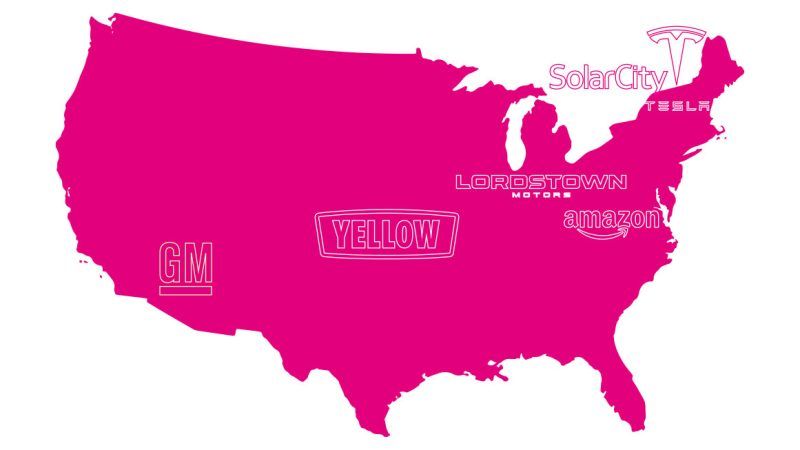The Government Is Better at Picking Losers Than Winners
It's taxpayers who lose when politicians give gifts, grants, and loans to private companies.

All investment is risky. What better way to avoid that risk than to use other people's money? Federal, state, and local governments dispense gifts, grants, and loans to private companies, generously funded by taxpayers and usually with vague promises of economic development in return. While politicians say they don't like to pick winners and losers, even the "winners" sometimes turn out to be losers for taxpayers.
General Motors I.T.
Innovation Center
Chandler, Arizona
General Motors announced in 2013 that it had picked Chandler for the site of its fourth Information Technology Innovation Center, an internal software development facility. The company would invest $21 million and create 1,000 jobs, and in return Chandler promised over $1 million in economic incentives between 2015 and 2017. In August 2023, G.M. announced that it would close the facility, laying off 940 out of 1,029 workers by the end of October. Chandler's development director told local news that the announcement "came as a complete surprise."
Lordstown Motors
Lordstown, Ohio
Amid the financial crisis in 2009, General Motors (G.M.) received $60 million in tax breaks to expand its Lordstown plant. All the company had to do was keep the plant open through at least 2039; instead, G.M. closed the plant in 2019. Rather than claw back the full amount, the Ohio government settled for a $20 million repayment. G.M. then sold the factory to upstart electric vehicle–maker Lordstown Motors, which received another $24.5 million in grants and tax credits. In June 2023, after delivering fewer than 40 vehicles to customers, Lordstown Motors filed for bankruptcy.
Tesla and SolarCity
Buffalo, New York
In 2013, New York pledged as much as $1 billion toward economic development projects to revitalize Buffalo as a manufacturing hub. The largest beneficiary was SolarCity, a solar panel manufacturer later acquired by Tesla in 2016. The state offered $1.25 billion in grants and tax credits in exchange for a factory that would create 5,000 jobs and generate 1,000 solar panel installations per week. But in 2023, after eight years of lowered job requirements and shifting deadlines, the factory employed just 1,700 people (mostly Tesla analysts) and averaged 21 solar panel installs per week.
Yellow Corporation
Overland Park, Kansas
In 2020, the Treasury Department was apportioned $17 billion in pandemic relief funds to disburse to companies it deemed vital to national security. It loaned $700 million of those funds to Yellow Corporation, a freight trucking company worth only $70 million that had lost $104 million the prior year. According to an audit released in 2023, Yellow had an outstanding balance of $729 million in March and had paid only a measly $230 toward the loan's principal. Yellow filed for bankruptcy in August 2023.
Amazon HQ2
Arlington, Virginia
When Amazon announced plans in 2017 to open a second headquarters ("HQ2"), it encouraged "local and state government leaders'' to compete for the project. After receiving several multibillion-dollar offers, Amazon chose Arlington—directly adjacent to Washington, D.C. The state offered as much as $750 million in conditional grants for Amazon to build its campus in Virginia, and in April 2023, the company requested its first tranche of taxpayer funds—over $152 million. While phase one of the project was completed in May 2023, construction is paused indefinitely on phase two.


Show Comments (26)